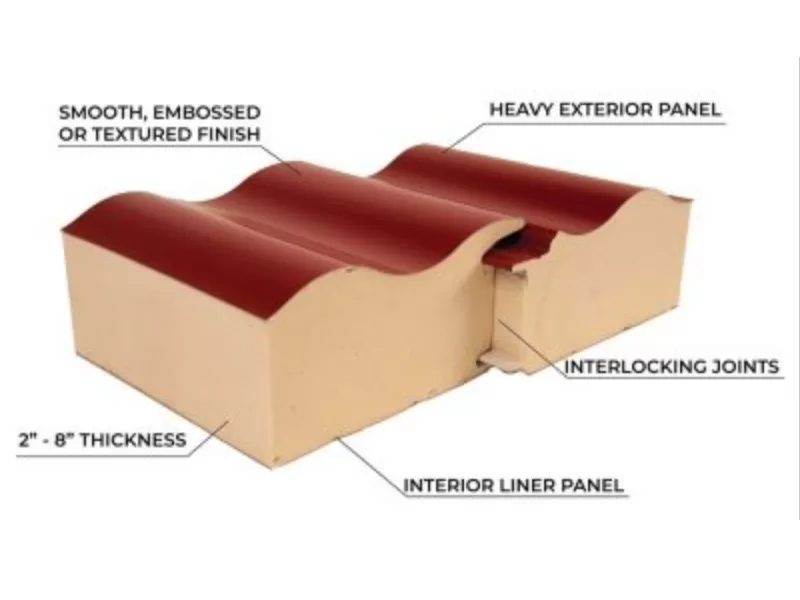
“Explore the advantages of using Expanded Polystyrene (EPS) for insulation. Lightweight, cost-effective, and highly efficient, EPS provides superior thermal protection, moisture resistance, and energy savings, perfect for eco-friendly and durable construction.”
In the quest for energy-efficient, cost-effective, and easy-to-install insulation materials, expanded polystyrene (EPS) insulation stands out as a beacon of innovation in the construction industry. Whether you’re a diligent homeowner looking to lower your energy bills or a construction professional striving for excellence and efficiency in building practices, EPS insulation presents compelling benefits that can’t be ignored.
In this detailed blog post, we will explore the myriad of advantages that EPS insulation offers, from its remarkable thermal performance to its environmental friendliness, making it a frontrunner in the insulation space. Get ready to dive deep into the world of EPS and discover how it can transform your building projects and home insulation approaches.
Table of Contents
- Introduction to EPS Insulation
- Thermal Performance and Energy Efficiency
- Ease of Installation
- Moisture Resistance and Durability
- Versatile Applications Across Structures
- Environmental Impact and Sustainability
- Cost-Effective Insulation Solution
- Case Studies and Success Stories
- [Frequently Asked Questions (FAQs)](#frequently-asked-questions-faqs)
- Closing Thoughts
Introduction to EPS Insulation
Expanded polystyrene, commonly referred to as EPS, is derived from a lightweight cellular plastic material that contains air-filled voids. These voids are the secret behind EPS’s superior insulation properties, giving rise to a myriad of applications within the realms of both residential and commercial construction.
Thermal Performance and Energy Efficiency
One of the most lauded benefits of EPS insulation is its exceptional thermal performance. The air entrapped within its cellular matrix provides outstanding resistance to heat flow, ensuring that buildings stay warm in winter and cool in summer. For homeowners, this translates to a drastic reduction in energy consumption, reflecting significantly lower utility bills and contributing to a more sustainable planet.
Ease of Installation
The lightweight nature of EPS makes it incredibly easy to handle and install. Construction professionals value this characteristic because it translates to reduced labour costs and faster project completions. With EPS, intricate cutting and fitting are simplified, thanks to the material’s adaptability, allowing it to be shaped easily to fit any design contours.
Moisture Resistance and Durability
Long-term insulation efficiency heavily depends on the material’s ability to maintain its insulating properties over time. EPS stands strong here, boasting excellent moisture resistance, which prevents the decline of its R-value. This characteristic not only ensures a consistent thermal barrier but also wards off mould and mildew, contributing to a healthier living environment.
Versatile Applications Across Structures
EPS insulation doesn’t discriminate based on construction type; it shines in various settings, from residential homes to commercial buildings. It’s compatible with walls, floors, and roofs alike, providing architects and builders with a flexible solution that fits into their visionary designs. This versatility only amplifies EPS insulation’s appeal as a go-to material in diverse construction scenarios.
Environmental Impact and Sustainability
In today’s eco-conscious world, the sustainability of building materials is a hot topic. EPS insulation steps up to the challenge, offering options that include recycled content. It’s also recyclable itself, ensuring that the material’s lifecycle continues beyond its initial use. By choosing EPS, building owners can feel confident about minimizing their environmental footprint.
Cost-Effective Insulation Solution
While the performance of an insulation material is paramount, the cost is always a consideration. EPS insulation strikes the perfect balance between efficiency and affordability. It’s competitively priced relative to other insulation materials, despite offering superior benefits, ensuring that you don’t have to break the bank for high-quality insulation.
Case Studies and Success Stories
The efficacy of EPS insulation is not just theoretical; it’s been proven in countless real-world scenarios. From residential renovations that have led to significant energy savings to commercial constructions that prize their speed of installation, the success stories are numerous and diverse. In-depth case studies highlight the transformation that EPS insulation has driven in the building landscape.
Frequently Asked Questions (FAQs)
Anticipating your questions, we compile and answer the FAQs surrounding EPS insulation, such as its fire resistance, installation methods, and comparison with other insulation types. We aim to dispel myths and provide straightforward information to aid you in making informed decisions about your insulation needs.
Closing Thoughts
Expanded polystyrene insulation presents a formidable option for anyone looking to upgrade their building’s insulation. Its combination of thermal efficacy, ease of use, moisture resistance, versatility, sustainability, and cost-effectiveness make it a well-rounded choice that merits serious consideration.
Remember, choosing the right insulation for your building project is pivotal. With EPS insulation, you’re selecting a material that promises long-term performance and sustainability—investing not only in immediate benefits but also in the longevity of your structure and the health of our planet.
To truly understand the impact of EPS insulation, we have compiled a selection of case studies and success stories from real-world projects that have leveraged its benefits. These examples showcase the versatility, ease of installation, and energy efficiency that EPS insulation brings to the table.
